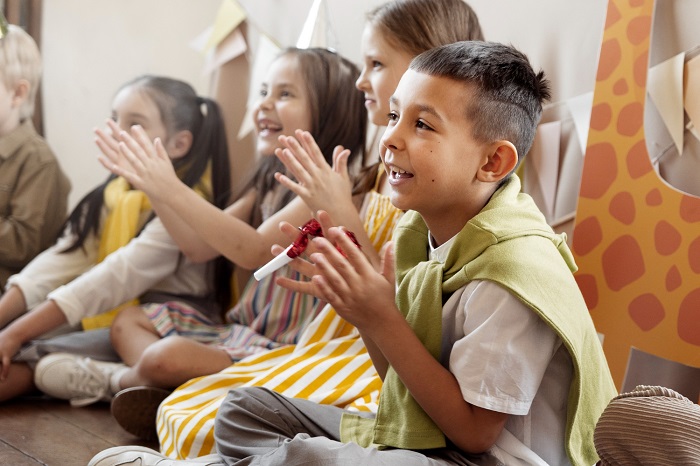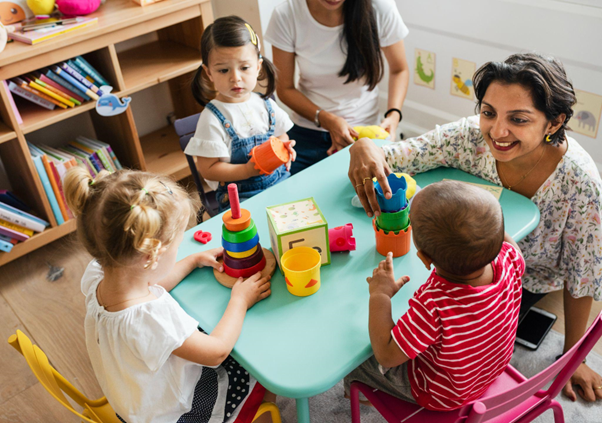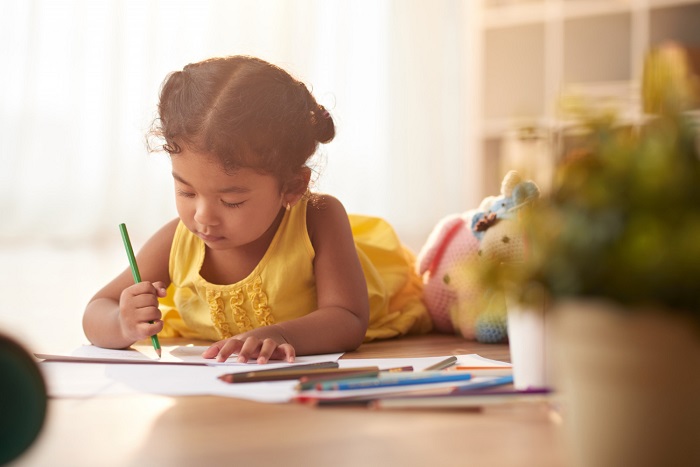Your child is growing and developing both physically and verbally, cognitively, socially, and emotionally before they are born until they graduate from college. These abilities often progress predictably in children and are sometimes referred to as reaching developmental milestones by medical professionals.
Some children will attain these developmental milestones sooner than others, and for the most part, both scenarios are acceptable. Every child is different, and they all grow and develop at their rates. Nevertheless, keeping an eye on your child’s growth and behavior patterns is helpful since it might show you when something is off or unusual.
Typical Behavior v/s Atypical Behavior
Typical Behavior in kids usually involves playing with others, following instructions, and exhibiting age-appropriate Behavior. Typical Behavior in younger children may include playing with toys, sharing, and following basic rules. As children get older, typical Behavior may involve following a schedule, completing tasks independently, and interacting with peers cooperatively. Atypical Behavior in kids can involve difficulty focusing, difficulty following instructions, and difficulty with social interaction. Atypical Behavior may include aggressive or inappropriate Behavior, extreme tantrums, and difficulty regulating emotions. Atypical Behavior can be caused by various factors, including developmental delays, kids’ health issues, or medical conditions. Early intervention and proper treatment can help improve outcomes for children with atypical Behavior.
Typical Baby Behavior
Typical Behavior in babies includes exploring their environment, crying, babbling, and demonstrating a range of emotions. They may be easily startled, especially by loud noises. It is also typical baby behavior to enjoy being held, cuddled, and comforted. Baby behavior may also be curious and more alert to their surroundings, looking around and observing the world. They may reach for objects, such as toys and books, and want to explore them. Babies learn and develop by interacting with the world around them, so creating a safe, stimulating environment is important. Babies also love to be entertained, so providing different activities and toys can help to keep them engaged.
Typical Toddler Behavior
Typical Behavior in toddlers includes a wide variety of activities and behaviors. They tend to be curious and may explore their environment by touching, tasting, and feeling objects. Toddler behavior also exhibits testing boundaries, and they may push against them to see how far they can go. They may be very active and have difficulty sitting still, as they have short attention spans. Communicating and expressing their emotions and needs through talking, screaming, and crying is also typical toddler behavior. Toddlers may also express their independence by wanting to do things independently and refusing help from others. They may also display behaviors such as throwing temper tantrums, as they have difficulty regulating their emotions. As they grow, they will learn how to express their emotions better and learn how to respond to different situations.
Typical Preschoolers Behavior
When a child enters preschool age, they become more autonomous and start to like refusing things. They might also throw fits now and then, but they should learn to control their emotions and impulses.
Preschoolers typically feel more comfortable stepping out away from parents and carers. Their social networks are growing, and they are learning to play with kids. Children of this age also pick up social conventions like taking turns and sharing.
It’s common for preschoolers to see them weep at pick-up or exhibit concern about spending a lot of time in school. However, as the kids get used to school, develop friends, and get to know their teachers, the fear or reluctance to school should fade.
Preschoolers may exhibit unusual Behavior if they are having trouble adjusting to their new environment, if they resist participating in an activity with a parent or teacher one-on-one, or if they are not playing with the other kids.
Speak with a kid’s health care professional if they refuse to make eye contact with other children or try to speak, especially if they are ignoring other kids who make an effort to interact with them.
The ability to socialize is the most crucial skill that kids acquire in preschool, so it must be addressed right away if it is not.
Typical School-Age Behavior
Elementary school students would seek more independence than they can manage as they are learning to take on more responsibilities. And although it’s crucial to promote their independence, they will probably still require your direction when it comes to accomplishing their assignments and duties. They also require some assistance in managing unpleasant feelings.
School-aged children create friendships and social circles and explore alternative hobbies that might appear out of nowhere as typical Behavior. Children at this age are just beginning to develop a sense of identity.
Typical Preteen and Teen Behavior
When your child is in the tween and adolescent years, their attitude frequently reflects their increasing independence and yearning for freedom, especially when you are their parent or caretaker. Adolescents are frequently combative when they start to drift away from you. They might see changes in their group of acquaintances who crave more freedom or seclusion, or they might make some terrible choices that have unavoidable repercussions.
Observation is the Key
In conclusion, if a parent observes unusual Behavior, they should keep an eye on it and strive to change it. They should communicate with a kid’s health professional or a mental health specialist if they have any concerns. Most unusual habits typically disappear with age or with persistent kindness, attentiveness, and control.
You should get your child assessed by a mental health expert if there are severe concerns in preschool or grade school or if issues suddenly arise in middle or high school. To read more such informative blogs, hop on to the experts in this field, EuroKids. You could also visit a centre nearby to understand your child’s behavior.
Visit EuroKids for more engaging blogs.














